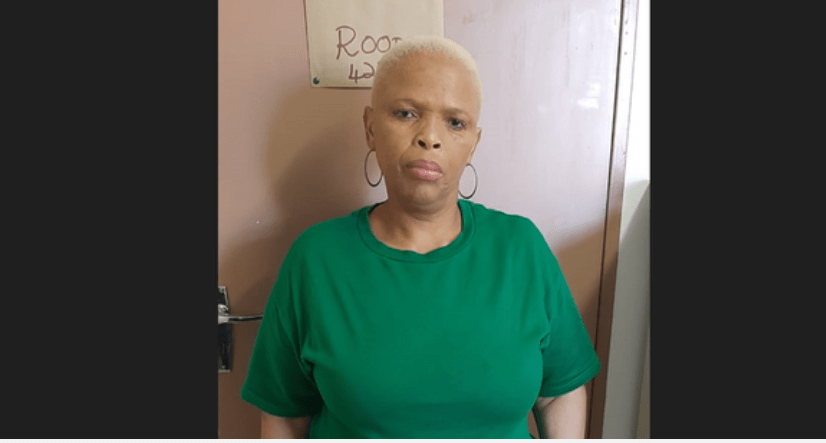The Independent Police Investigative Directorate (IPID) has confirmed its intention to investigate the death of a 22-year-old student from Tshwane University of Technology (TUT).
The incident occurred on March 8th at approximately 8:30 pm at the Khayalethu Student Residence.
According to IPID spokesperson Phaladi Shuping, allegations suggest that Thabelo Mbau was assaulted by police officers from Witbank at the residence, resulting in his subsequent death in the hospital.
Shuping stated that a post-mortem examination was conducted on March 12th, and seven individuals have been interviewed, providing statements regarding the events of March 8th.
IPID has assured that the investigation will be conducted impartially to uncover all relevant details.
Furthermore, IPID investigators plan to consult with the Senior Public Prosecutor once adequate information is gathered to aid in decision-making.
Shuping has urged for space to be given to IPID and other law enforcement agencies to conduct a thorough investigation.
The family of the deceased has been kept informed of the progress made by investigators.
IPID has also appealed to anyone with information pertaining to the incident to come forward.
TUT expressed deep sorrow over Mbau’s passing, describing him as a second-year Electrical Engineering student based at the eMalahleni Campus.
According to the university, Mbau allegedly suffered fatal injuries at the hands of members of the South African Police Services (SAPS).
TUT is awaiting an official report from IPID regarding the circumstances surrounding the student’s death and has extended support to the bereaved family and friends during this challenging period.
Following the tragic death of 22-year-old TUT student Thabelo Mbau, a wave of shock and grief rippled through both the university community and the broader public. Mbau, described by friends and faculty as a diligent and promising student, had been pursuing his studies in Electrical Engineering with dedication and enthusiasm. His untimely demise cast a somber cloud over the campus, leaving many questioning the circumstances leading to such a tragic outcome.
As news of Mbau’s death spread, students and faculty members alike gathered in solemn gatherings to mourn his passing and reflect on the broader implications of his loss. Candlelight vigils were held, with heartfelt tributes pouring in from those who knew him closely and even from those who had only crossed paths with him briefly.
In the midst of this outpouring of grief, calls for justice reverberated across social media platforms and within the university corridors. Many demanded a thorough and transparent investigation into the events leading up to Mbau’s death, expressing concerns about police conduct and accountability.
The Independent Police Investigative Directorate (IPID), tasked with the responsibility of probing allegations of misconduct involving law enforcement agencies, found itself under intense scrutiny as it launched its investigation into the matter. With the eyes of the public fixed firmly upon them, IPID investigators worked tirelessly to gather evidence, interview witnesses, and piece together the sequence of events that culminated in Mbau’s tragic demise.
Meanwhile, TUT authorities grappled with the aftermath of the incident, striving to provide support and assistance to Mbau’s grieving family while also addressing the concerns and anxieties of students and staff members. Counseling services were made available, and special meetings were convened to facilitate open dialogue and communication within the university community.
As the investigation progressed, new details emerged, shedding light on the events that transpired on the fateful evening of March 8th. Allegations of police brutality surfaced, prompting widespread outrage and calls for accountability. Community activists and human rights organizations rallied behind Mbau’s family, lending their voices to the growing chorus demanding justice for the slain student.
In the face of mounting pressure, authorities vowed to leave no stone unturned in their quest for truth and justice. The wheels of justice, though often slow to turn, appeared to gain momentum as investigators worked diligently to untangle the complex web of circumstances surrounding Mbau’s death.
Months passed, and as the investigation neared its conclusion, anticipation mounted among those eagerly awaiting the findings of the IPID inquiry. Finally, after painstaking deliberation and thorough examination of the evidence, the IPID released its long-awaited report, providing a comprehensive account of the events leading up to Mbau’s tragic demise.
The report, while offering some degree of closure to Mbau’s family and loved ones, also reignited public debate about police accountability and the need for reforms within law enforcement agencies. Questions lingered about the systemic issues that may have contributed to Mbau’s death, prompting calls for broader societal change and a renewed commitment to upholding the rights and dignity of all citizens.
As the TUT community continued to grapple with the aftermath of Mbau’s passing, his memory lived on as a reminder of the fragility of life and the importance of standing up for justice in the face of adversity. Though his presence was sorely missed, his spirit endured, serving as a beacon of hope and inspiration for those committed to building a more just and equitable society for future generations.









